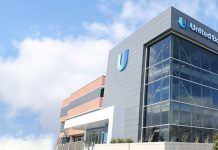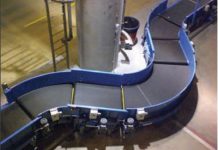
State officials are building on the COVID-19 mobile testing program launched last spring by Detroit’s Wayne State University and Wayne Health by increasing the infrastructure for other health services such as vaccine management.
The expansion is one of four initiatives announced as part of the state’s Racial Disparities Task Force Interim Report, which details progress Michigan has made in protecting communities of color from the spread of COVID-19.
Dr. Phillip Levy, who leads the mobile testing program for WSU and Wayne Health, created the Population Health Outcomes and Information Exchange, known as PHOENIX, a geocoded map housed at WSU that uses electronic health records without identifying information and information on population-level social determinants to paint an overall picture of health in Michigan area by area, using color coding to display differences.
In the case of COVID-19, PHOENIX mines data from the Detroit and Wayne County health departments to inform Levy’s team of where to schedule the units for maximum effectiveness and outreach to those who need it most. Test sites change based on weekly numbers.
From March and April to September and October, the average cases per million per day for African American state residents dropped from 176 to 59. In the same period, the number of probable deaths per million per day among African American residents dropped from 21.7 to one.
The mobile testing unit, operated through a coalition of WSU, Wayne Health, and Ford Motor Co., have visited nearly 200 different locations in the regions and tested more than 27,000 people. All sites offer free testing, and a prescription and identification are not required to be tested. The units go to three sites every day except Sunday. Sites include schools, churches, nursing homes, and other municipal centers throughout southeast Michigan.
“We recognized a need early, moved quickly, and now others are emulating it,” says Levy, who is assistant vice president for translational sciences and clinical research innovation and a professor and associate chair for research in the department of emergency medicine at WSU as well as chief innovation officer for Wayne Health. “Importantly, the approach we developed isn’t just about COVID testing, it’s about making sure we provide community members with the social and health care needs that are essential to keep them well.”
The state has committed to providing three additional units to Wayne Health.
“It is really gratifying to see our model being leveraged by the state and other locations building upon the approach we developed and refined,” says Levy. “We are grateful to our initial supporters from the philanthropic community who made this initiative possible and to the state for adopting it as a pillar of their testing expansion. Outcomes for COVID depend on so many factors, and our mission it to support, in every way possible, those who come to one of our test sites.”











